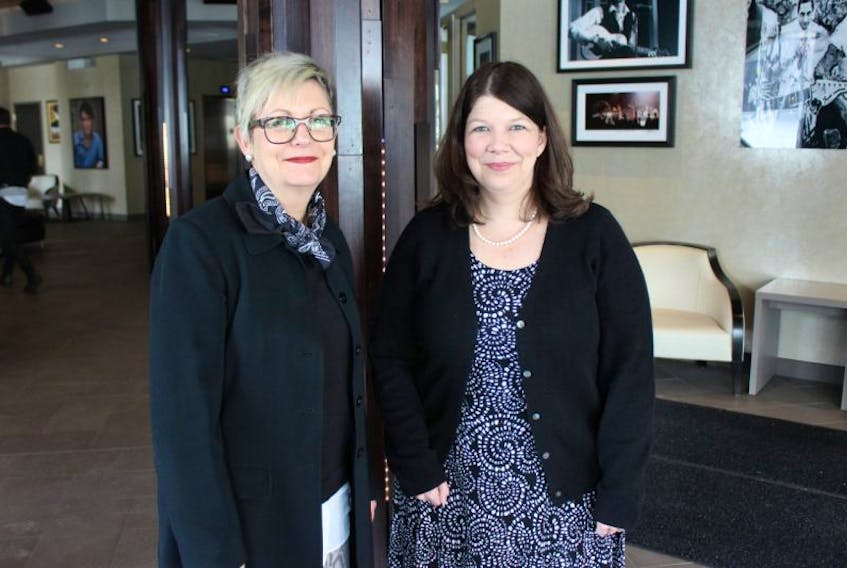They wanted to talk about funding for mental-health care and where psychologists fit in.
“One of the concerns for psychologists nationally, I think no matter where they are in Canada, is access to service within our publicly funded health-care systems,” Cohen later told The Telegram. “One of the things that’s evident is that psychological treatments are first-line interventions for mental disorders. One of the things that’s also apparent is that our public health systems fund certain providers to deliver in certain venues. So mostly physicians, mostly in publicly funded facilities like hospitals. The challenge is much of the psychological treatments, the psychotherapies, are not delivered by physicians. They’re delivered by psychologists, specially trained social workers, and what that means is that care isn’t accessible to the average Canadian who may need them.”
This province, she suggested as an example, could have better and earlier diagnostic assessments for children and youth.
She applauded the report from the province’s all-party committee on mental health and addictions. She also highlighted new money for mental-health services agreed to and included in the federal budget, amounting to $73 million over 10 years for this province, with $1.4 million to be spent this year.
The Government of Newfoundland and Labrador’s Budget 2017 added another $5 million for improving mental-health services here, for implementing recommendations from the all-party committee’s report, titled, “Towards Recovery: A Vision for a Renewed Mental Health and Addictions System in Newfoundland and Labrador.”
The psychologists were not the first to come with suggestions about mental-health spending. As Health Minister John Haggie told reporters on Thursday, decisions on specific spending are still pending.
A plan, with detailed response to the all-party committee recommendations, is expected by the end of June.
“Until we have a plan, it’s unlikely that we’ll be allocating any of that money, because how do you allocate money without a plan? It becomes cherry picking,” Haggie said.
There are, similarly, talks ongoing on specifics of how the money from the federal side will be used to improve care.
“Essentially in December, when we signed onto the accord, the undertaking that I got from (the federal minister) was we would set some common goals and some metrics as to how we got there. But we need a made in Newfoundland and Labrador solution, in terms of program delivery, because at one stage there had been talk of importing programs off-the-shelf from Toronto and Ottawa, which has never worked in the past,” Haggie said.
For her part, Cohen said psychologists can, very generally speaking, help in the area of early diagnosis, developing informational programs, evaluating programs, contributing as researchers and assisting in care in complex cases in the community.
There’s a lot to discuss when it comes to the details.
“What a six-year-old needs with a learning disorder, or a mom with postpartum depression needs, or a senior struggling with dementia — those are very different things,” she said. “So it’s challenging.”









